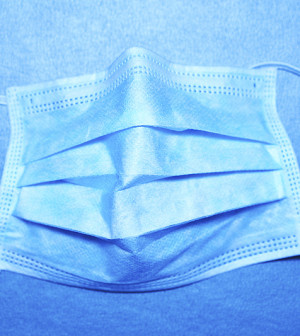- Could Your Grocery Store Meat Be Causing Recurring UTIs?
- Are You Making This Expensive Thermostat Error This Winter?
- Recognizing the Signs of Hypothyroidism
- 10 Strategies to Overcome Insomnia
- Could Artificial Sweeteners Be Aging the Brain Faster?
- Techniques for Soothing Your Nervous System
- Does the Water in Your House Smell Funny? Here’s Why
- Can a Daily Dose of Apple Cider Vinegar Actually Aid Weight Loss?
- 6 Health Beverages That Can Actually Spike Your Blood Sugar
- Treatment Options for Social Anxiety Disorder
Smokeless Tobacco May Contain Potentially Harmful Bacteria

There’s a new concern about smokeless tobacco — those products can harbor several species of potentially harmful bacteria, researchers warn.
Two types in particular — Bacillus licheniformis and Bacillus pumilus — can cause inflammation of the lungs and opportunistic infections, the study authors said. Opportunistic infections are those that occur more frequently and are more severe in people with weakened immune systems.
Other Bacillus species that occur in smokeless tobacco products also pose health risks, according to report co-author Steven Foley. He is a research microbiologist at the U.S. Food and Drug Administration’s National Center for Toxicological Research.
“Some species have been identified as causative agents in spice-related outbreaks of diarrhea and vomiting,” Foley said.
“Additionally, they produce a mild toxin which, in large quantities, could cause illness,” he added.
And several species of Bacillus, as well as some strains of Staphylococcus epidermidis and Staphylococcus hominis, can reduce substances called nitrates to a different substance called nitrites. This switch can lead to the formation of cancer-causing, tobacco-specific substances within the tobacco products, Foley said.
The study was published online Aug. 26 in the journal Applied and Environmental Microbiology.
About 8 million people in the United States use smokeless tobacco, also known as chewing tobacco, spitting tobacco, dip, chew and snuff. But, until now, there hasn’t been much research on microbes in these products, the study authors noted in a journal news release.
The new report provides a foundation for further studies. New research will also help guide the FDA’s decisions about regulation of smokeless tobacco, according to the researchers.
More information
The U.S. Department of Health and Human Services has more on smokeless tobacco.
Source: HealthDay
Copyright © 2026 HealthDay. All rights reserved.










